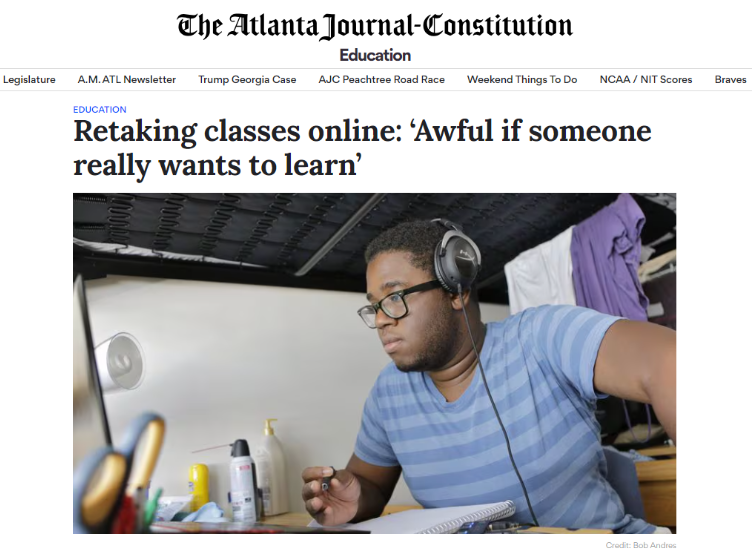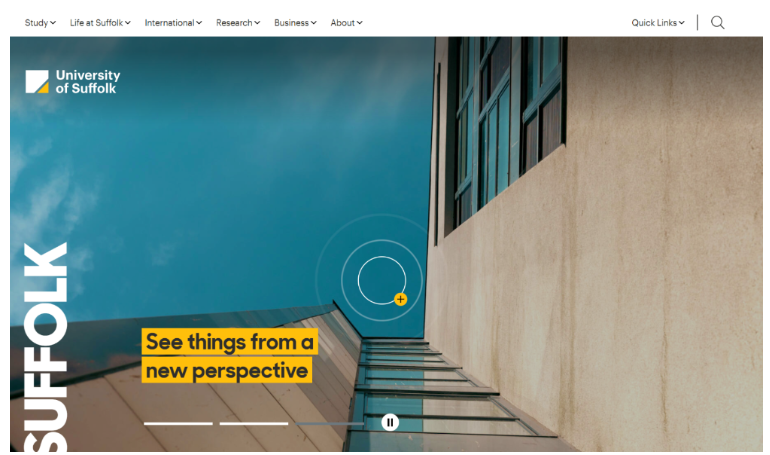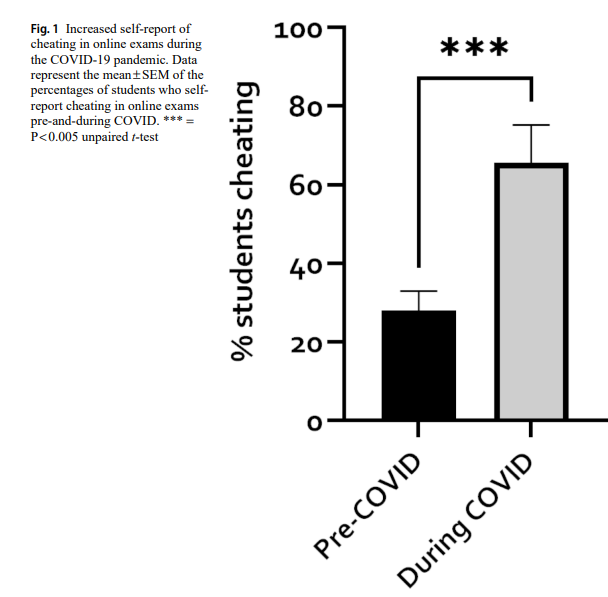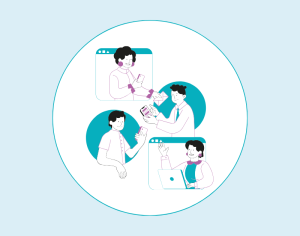Online learning is going to go higher by the end of 2025 and is going to change the way we have been learning. As per the forecast expenditure on advanced EdTech prediction on Statista for 2025, the spending is likely to go up to 12.6 billion for AR/ VR, 6.1 billion for AI, and 3.1 billion for robotics.
This also means that more courses will be created faster with the help of AI and will be available online and in virtual reality, making learning easier and accessible for everyone. However, this will also bring many challenges in the future.
Several studies and research from different universities presented the challenges of online learning. In addition to teachers, online learning also recorded students facing various challenges.
Let’s look at what different studies reveal about the advantages and disadvantages of online learning.
Disadvantages Of Online Learning- Case studies
Let us look at a few real-life studies that highlight and add to the disadvantages and problems of online learning mentioned above-
1. Impact On Teaching Of Online Learning
Online programs and courses are the new shiny thing on the internet that everyone is either doing or is contemplating doing.
It is easy to get lost in the shiny marketing gimmick where online platforms brag that they have hundreds of teachers on their platform, but the real question here is whether these teachers are qualified enough.
Isn’t quality better than quantity in this case?
According to the National Center for Biotechnology Information research paper, teacher-student relations are no longer as they used to be. Teachers reported that establishing social relationships with their students is a weakened process due to online learning.
It is interesting to discuss another phenomenon (that can be correlated to the above case) called the Self-fulfilling prophecy of teachers. It talks about how teachers’ low expectations of students lead to low student performance.
This is precisely what happened. Teachers reported having low expectations from students to participate in the online class (in the above study), leading to low participation.
Teachers can significantly affect a student’s life when they urge them to participate in class and have higher expectations of performing in class. That essence itself was killed in an online class.
Another noteworthy observation of online learning is how investors and techies have a say in how the course should be designed.
A teacher’s role in this regard has been declining, which can not be good because a techie or investor is less likely to know what is best for learners than teachers.
2. Impact On Student Learning In Online Learning
Let us now look at the other side of the coin: the impact of online learning on students or learners-
No Real Sense Of Achievement
I want to point out a real-life example of Anthony Sobowale (in the picture below) from Douglas County School. He was placed in an online learning course for his second attempt at passing the chemistry exam after 3 days of failing it.

Anthony spent 3 days in a classroom and at home, taking the same quiz to pass his exam. He finally passed the exam with an “A” Grade. However, he reported not feeling like he had earned this grade.
Issues With Repetitive Quiz-Based Learning
The problem is that, like Anthony from the above example, anyone can take the quiz repeatedly, figure out the correct answer or pattern, and score high marks on the test.
Getting high marks on online exams does not guarantee that you will achieve proficiency in a particular subject. It only means that you passed that specific quiz.
The Big Shortcut- Online Credit Recovery
The online credit recovery program in the USA helps students retake a subject for which they did not earn credits by going to an online credit recovery school and retaking the test for the part they failed.
A report pointed out that 90% of Georgia students who took the state test passed the course.
However, an Atlanta Journal-Constitution analysis found that only about 10% of students (who took this recovery program and successfully earned the credit by passing the online test) were proficient in the subject.
3. Ethical Concerns And Misleading Advertisements By Online Courses
Let us analyze the ethical dilemma surrounding online learning by looking at some real-life cases happening in the world.
The Fake Website Of The Phony “College”
A fake “college” website was shut down when it came to the attention of the Suffolk Trading Standards that this phony website for a non-existent college offered fake online courses for thousands of pounds to students.

Suffolk County in the UK reported on its website that this fake school was using the actual photos of Suffolk University in Ipswich, as shown in the image above, to look authentic. Below, I have also attached a screenshot of the actual University of Suffolk website for comparison.

The Battle With WhiteHat Jr
WHJ (WhiteHat Jr.), an online learning platform that claimed to teach coding the easy way to children as young as 6, picked a battle with anyone who spoke against them online.

Pradeep Poonia, an IIT graduate from India, was sued for $2.6 million for defamation when he pointed out how claims of WHJ were inconsistent, raising concern over what the children are being taught.
A few claims made by WHJ that raised suspicion in Poonia’s mind, as reported by Forbes India, were –
- WHJ claimed a child got placed in Google and is earning millions after learning coding through their platform. However, the child’s name and the amount of money he was earning kept changing on different channels.
- He also grew suspicious of the high rating on the app store as the reviews looked very similar and, therefore, claimed them to be fake.
This case raises the concern that, as the online learning platform grows more extensive and has more resources, will it shut the mouth of whistleblowers?
How are people supposed to make an informed decision when there is a possibility of deceptive marketing techniques used by online learning platforms?
Misleading Claims And Promises Of Online Learning Platforms
Speaking of misleading, Some course platforms mislead learners into believing they will find a job after the course. The truth is that no certificate can guarantee a job placement.
It is time that these learning platforms came out and spoke the truth about their certificates, aiding in enhancing your CV at the most and nothing more.
General Concerns About Online Learning
A few other concerns that need our attention are the side effects of online learning that impact learners socially, psychologically, and physically.
1. Physical And Mental Health Issues
In a study conducted by Yinghua Wang, it was found that distance education increases the risk of clinical depression, generalized anxiety disorder, PTSD, apathy, learned helplessness, burnout, nervous breakdown, and so on.
2. Monitoring Cheating
Philip M. Newton & Keioni Essex, in their research paper, report that 44.7% of participants willingly accepted that they engaged in some form of cheating in online exams.

It was found in this study that cheating in exams drastically increased during COVID-19 when students (in their homes) were taking online tests when no one was supervising them.
Students in the study reported that they were more likely to cheat independently, motivated by an examination design and delivery that makes it easy for them to do so, which online learning does.
3. Economic Disparities And Unequal Access
Many learners in developing and under-developed countries lack internet access, amplifying the educational gap between the rich and the poor.
A study found that increasing access to free internet can reduce this gap. Another factor that was brought to attention was that the economic condition of a family is a significant indicator of who gets an education and who does not.
In an ideal world, everyone would have access to the internet, which will help bring education to them. Still, we do not live in a perfect world, and learners without access to a laptop and internet are often left out of the online learning world.
4. Peer Interactivity Missing, Leading To Loneliness
In a paper titled “Loneliness, Student Engagement, and Academic Achievement during Emergency Remote Teaching during COVID-19: The Role of the God Locus of Control,” interesting observations such as below can be made-
- Students often experience loneliness owing to a lack of interpersonal connections in online learning activities.
- Remote teaching can create an impersonal atmosphere, leading to a lack of familiarity among students and a loss of sensitivity toward others’ body language and non-verbal cues. This can lead to concerns about students’ long-term psychological and social development.
- Additionally, online learning courses do not provide enough verbal interaction, making it difficult for teachers to measure student engagement and respond accordingly.
Risk Of Cybersecurity Threats In Online Learning
The three of the main cyber-attacks against educational institutions are-
- Ransomware assaults
- DDoS attacks
- Phishing attacks
The statistics involving cyber attacks on educational institutes are scary. I found a few facts in the research link here.
- The cyber-attack in February 2021 alone affected 200,000 people through educational platforms.
- In February 2020, Quebec’s Minister of Education confirmed that hackers had stolen data from 360,000 teachers in Quebec.
- In 2021, 54% of U.K. universities reported data breaches. The worst thing was that the staff lacked any cybersecurity training.
- The 2020 Blackbaud hack impacted universities, including the University of London & Rhode Island School of Design. During this hack, many universities paid ransom to get their data back.
Issues For Individuals With Disabilities
Even though online learning has been a boon for people with disabilities (who can not travel or sit in a classroom) to access education from the comfort of their homes, many challenges are involved here, too.
A trend of loneliness, as discussed before, and its psychological and social impact was observed in learners with disabilities, too.

In a conversation with a newspaper, Ryan Kellems at BYU, who is an associate professor of counseling psychology and special education, pointed out that students with ADHD will likely lose interest in online classes and become “unengaged.”
Many students with disabilities might need special software or tools to access education online. An initiative all governments and educational institutes should take sou motu to make education available to all.
Recommendations And Solutions To Improve Online Learning
Online learning is relatively new and only got a boost during the pandemic in the recent past. Presenting a few solutions after criticizing a novel, the young concept of Online learning is vital.
Use these tips to protect yourself from scams and make the best out of learning online.
- Check accreditation, tutor details, and other details
Check the course accreditation, tutor qualifications, and platform before signing up. By simplifying searching and cross-verifying a few details like these, you will know the authenticity of the course.
- Check for “.edu” sites only.
Education platforms with the “.edu” are usually the ones you can trust. These institutions and organizations are accredited by an agency recognized by the US government and are the only ones eligible to apply for a “.edu” domain.
Check the list of accredited institutions here- U.S. Department of Education’s list of nationally recognized accrediting agencies.
- Read the fine print
Prevention is better than cure. Only sign up or make payments for courses after reading the terms and conditions.
- Do not get pressured into enrolling in a course by taking a free trial
Many platforms and websites will give you a free trial of the course and later force you or subtly pressure you to make a payment right after the free trial.
Do not get pressured into doing so. A legitimate course creator or platform will never push a course to you because their course will speak for them. They do not have to sell their course to you using coercion.
- Learn offline from a traditional school.
This one is obvious. Traditional schools are safer than online learning as they are a part of a regulated system. Schools must regularly go through audits and submit reports for regulatory bodies to check, making them a trustworthy alternative.
The teachers hired by schools are trained to teach children and have dedicated degrees in teaching, unlike course instructors online.
Schooling systems are not perfect, but they are usually a safer option for technologically challenged people.
Tip: Do not enroll for the course if no clarity on curriculum and fees is given. Most likely, such courses are a scam.
Challenges With Online Learning- Lessons From Covid-19
Covid-19 forced all of us to live in the dystopian future. Children and students globally had to sit at home and learn from home. The lessons we all learned from the pandemic were:
Parents As Home Class Monitor
Parents globally were seen juggling their work and their children’s online school lessons, projects, and homework during the lockdown.
Many parents had to play the role of assistants to their children in online classes as children would lack the motivation to learn new ways of learning by themselves.
Despite being born with the digital gene that helps them multitask online, the younger generation lacks the attention span often compared to that of a goldfish. This made parents the unpaid monitor of the class taken from home, where they had to pay more attention to what their child was doing.
Low Student Engagement And Participation
Students would put their mic on mute, stop sharing screens, and sleep through the lectures.
Teachers had to force students to speak up and turn on their cameras. Overall, participation in the online classroom was at an all-time low. (a study is discussed later in here on this matter)
Technical Problems And Glitches
Many students who didn’t have high-speed internet or lived in areas with connectivity issues would get disconnected from the class. A few would be joining back but would miss out on the class for that duration.
Teachers also had to keep track of who was signing in and out of the class, creating a big distraction from learning.
The connectivity issues also happened from the teacher’s end, leading to a colossal waste of time, effort, and resources. Another problem with teachers was their lack of knowledge of using technology, causing online classes to function less efficiently.
Advantages Of Online Learning
Even though there are so many problems with online learning right now, we are moving in a better direction. The existing advantages of Online learning are-
1. Flexibility to learn
Online learning helps you take a course at your convenience and comfort. Almost all online courses are self-paced and can be replayed, paused, and played when you want. Currently, the e-learning industry is worth $185.20 billion, and it is all because of the COVID-19 pandemic, which introduced learning flexibility in 2020.
2. No prior education required
You can take an online class and build your learning from beginner to advanced level without prior knowledge about a subject.
Unless you are not opting for a degree, you can take different online courses without any eligibility criteria.
3. Accessibility
Yet another prominent rise in online learning has emerged due to its accessibility. Thanks to internet access globally, students can enroll in courses from different universities in the comfort of their homes.
You only need a laptop and a strong internet connection to take a course in your desired field.
4. Online learning can save cost
You can save on tuition fees, traveling, food, rent, and more, as online courses do not require attending a class in person or moving to a different city for education.
5. There are plenty of course options to choose from.
One of the significant advantages of online learning is that there is a course for almost everything you want to learn on various platforms, such as Coursera, Udemy, edX, etc.
Depending on your online learning platform, you can opt for one or multiple courses at once.
6. Courses are updated
Unlike traditional syllabi, online courses are updated frequently. This means you do not have to wait years to understand and learn new updates in your niche.
Especially if we talk about tech and AI, the courses are updated with the latest updates more frequently.
7. No need for textbooks
Talk about saving the environment! All your course material is made available online, so you save some more by not having to buy textbooks.
8. Online learning is environment-friendly.
Online learning helps the planet because you save paper by not buying physical textbooks. The carbon footprint left by humans when traveling is also reduced considerably because you do not have to travel to school every day.
9. Available 24/7.
All the course material is available online, including your professors’ lectures, at any time. The traditional approach lacks 24/7 availability, which might restrict the student. On the other hand, you can learn at your own pace with online courses.
10. How Online Course Creation Platforms Are Improving Learning Environments.
Online course creation platforms revolutionize learning environments by providing instructors with advanced tools to design engaging and interactive courses. These platforms offer features like multimedia integration, interactive quizzes, and real-time feedback, which help in creating online courses and also enhance the learning experience, and make education more accessible and personalized.
Conclusion – Online Learning Is A Boon But Needs A Lot Of Improvements
Now you understand the advantages & disadvantages of online learning. There are the good, the bad, and the ugly of online learning.
According to the World Economic Forum, 68 million online courses were taken in 2022. Online learning is here to stay; its upward trend is a testament to it.
Online learning will become essential to traditional learning as we move forward. Please use the knowledge you have gained today to become cautious and practice safe methods in your online learning journey.
One last tip I want to leave you with is to balance online learning and traditional school. Get a degree and use online courses to strengthen your CV and update your skills in your field to maximize your overall growth.
FAQs
Yes, online learning is as effective as traditional formats of getting education. A highly self-motivated person can learn just about anything within a few months of taking a course online.
Self-solation, the strain on the eyes due to staring at a screen, and the absence of opportunity to grow one’s social skills are a few adverse effects of online learning.
The biggest disadvantage of the Internet for students is Isolation and lack of peer interaction.
The positive is the flexibility and accessibility of remote learning, whereas the negative is the lack of physical activity and the absence of peer groups.
Zoom allows anyone and everyone a free platform to connect and exchange ideas, making it a more extraordinary tool for taking education to the remotest locations globally.

